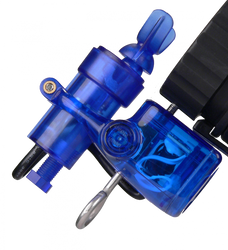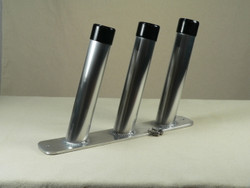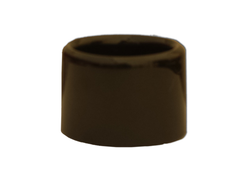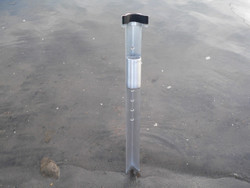 Loading... Please wait...
Loading... Please wait...- Home
- Fishing Tips & Tricks Blog
- Is your gear fishing on the bottom? Your fish bite alarm can tell you!
Is your gear fishing on the bottom? Your fish bite alarm can tell you!
Posted by John Hoiland on Aug 6th 2013
False Alarm? Not necessarily...
When bank or anchor fishing in tidal areas or below dams, it is often necessary to adjust your weight throughout the day in order to stay on the bottom. We see this all the time fishing on the Columbia River...even a hundred miles up river we have large tidal swings. There are lots of areas where you can start out fishing with as little as 4 or 6 ounces and end up using over 20 to hold!
We always try to fish as little weight as possible. Less weight equals better backbouncing performance, less snags, more hookups on shy biters, better hooksets and its just generally more fun using lighter tackle. So you drop down a six ouncer in the morning and all is well...but what happens when the current picks up. Hopefully you are dutifully staring at your rod and you notice that the movement pattern changes or you can see your line changing angle as it heads down river. If you miss it, your gear picks up off the bottom and starts slowly turning into a meatball. This is bad on two fronts. For one, you absolutely aren't fishing when this happens, whatever presentation you were shooting for isn't happening when your gear is tumbling along the bottom. Its also a great way to get snagged up and lose your gear. Best cast scenario is you get your rig back and have to retie it all since your leader and dropper lines have kinked one another up.
How can a fish bite alarm help you in this scenario? With the Fish Strike Fish Alarm's adjustable tension control you can often times use the alarm as a tool to let you know your gear has started to drift. We approach the tension setting on our alarms the same way we do lead...less is more. If you are salmon fishing you could easily crank the tension up to several pounds and the violent strike of a Chinook will still easily set off the alarm. Some fisherman intentionally set their alarms up this way and thats fine if you want too. What we recommend is to get your gear in the water and fishing and then dial the tension back so that even a slight change will set off the fish alarm. You will invariably get a few more false alarms from boat wakes etc this way, but if everything else is pretty static and your alarm goes off, its probably time to check your weight.
Latest Blog Posts
Current Top Sellers
-
1Fish Strike Fish Alarm$29.95
-
2Rod Station Triple
$119.99$99.99 -
3Weight Station Lead Tray
$79.99$59.99 -
4
-
5Fish Strike Bank Slayer
$44.99$39.99






